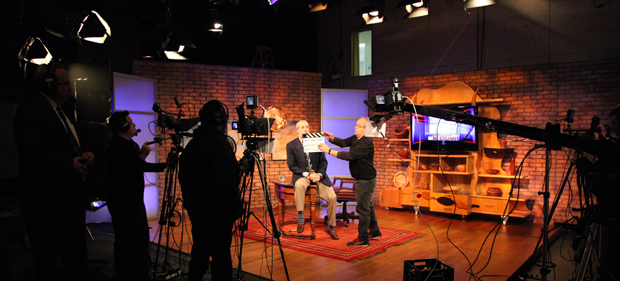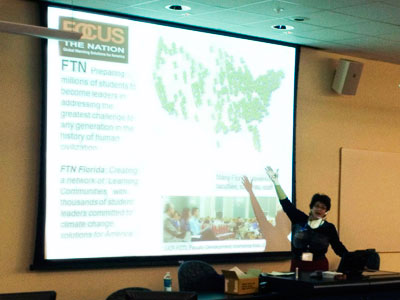I love education. Learning has enthralled me from the very start. I loved the pride I felt after receiving a good grade, and I loved bringing home new and interesting facts from class to tell my parents about. However, as I have entered the university system, there are aspects that I really wish were different. If universities incorporated these ideas into their classes, they might start seeing more successful graduating students who have been properly prepared for the workforce of our generation.
1. Less lecturing, more experiencing.
While I fully understand the importance of lecturing, I think it’s just as important to experience the field in which we hope to enter. If I am a mass communications major, I don’t want to learn about the evolution of the newspaper industry every single day. Knowing the history of an industry is incredibly important, but will it help me once I enter the workforce? I want to visit the Tampa Tribune. I want a tour of local advertising and public relations agencies. Professors should have speakers from your intended industry come in and talk about what it’s like to work in that field. These are the types of experiences that will help students figure out what they really want to do in life. I’d like to have a day a week in my classes where we are physically doing the types of things that we will be doing in our future professions.
2. Standardized tests aren’t always the best measure of how much a student has learned.
There are two types of students in the United States: the ones that have panic attacks over standardized tests and can’t perform to their best ability, and the ones that know how to beat the system. The kids who have the panic attacks freak themselves out so much that they blank out even on questions they know. On the contrary, I’ve been taught since the 5th grade methods on how to properly guess an answer on a standardized test. Should we really be learning how best to beat the test, or should we actually be learning the content? There must be a better way to measure a student’s abilities in what they have been learning. Personally, I am a good test taker. Process of elimination has helped me get answers correct on content I’d never seen before. But just because I’m a good guesser doesn’t mean I know the material. That isn’t learning.
3. Assigning hundreds of pages of textbook reading is ineffective.
College professors need to realize that not only does the technology of this generation discourage students from textbook reading, students frankly don’t have enough time. Students are taking 3 to 4 other classes, and on top of assignments for your class and others, the textbook simply will not get read. How about creating media-related content that teaches students the concepts? I’d like to see professors experiment with assigning short informational Youtube videos as homework assignments. I have a feeling something more visual might help students who aren’t crazy about textbook reading learn the material better.
4. If you’re making me take math, at least make it relevant.
I remember being so excited coming into college because I was ready to start learning about what I was actually passionate about. I understand the concept of making students well-rounded individuals by having them take all sorts of classes, but at least have these irrelevant classes relate back to their majors and lives. As a mass communications major, the only type of math I’d be interested in learning about is how to balance my personal budget. Learning real-life financial techniques would be helpful for people lacking in that area. Algebra will not.
5. Classrooms should be set up in a way that encourages class discussion.
In every class you take there will be an introverted student who sits in the back and never gives his/her opinion. What if that opinion is one that could teach an entire class something they may have never thought of before? I had a teacher in high school set up our desks in a circle. This made the introverted kids speak up just as much as the extroverted ones because they felt more comfortable. Class discussion is so important to the course material because it gives students the chance to give their opinions and learn from each other.
6. Practicing a concept should be done in the classroom.
Why are we being taught concepts only to not understand them and then fail at the homework? We should really spend half of our class time learning the concepts, and then half the time practicing them together and with our instructor. Then, students who don’t have time to go to office hours can ask questions right then and there in the classroom.
7. Less reading off PowerPoints, more helpful note taking.
The majority of university lecture classes involve professors reading straight off of a PowerPoint presentation. While using a source of media to teach students concepts is a great idea, it needs to be transformed. Show us what you’re talking about, don’t just read it.
Students are also so busy trying to write down everything a professor has written on a slide that they don’t even know what they just wrote down. I had a professor this semester that gave us notes for the semester that were already halfway filled in. Then, during her lectures, we’d just have to fill in the blanks. That allowed me to listen without spending too much time writing.
It makes sense for education to change with new generations of students. Check out this video about changing education paradigms by Sir Ken Robinson: http://www.youtube.com/watch?v=zDZFcDGpL4U
Maybe I’m crazy for wishing these types of things could be implemented, but as a college sophomore I’m struggling with all of these problems and more. I find myself wanting more from my university. Instead, I am learning on my own and through my own experiences outside of class. Maybe that is healthy, but with what we’re paying to go to school, it might make sense to revolutionize education for a technology-minded generation growing each and everyday.
What do you think? Are you getting what you’d hope for from your university system?







